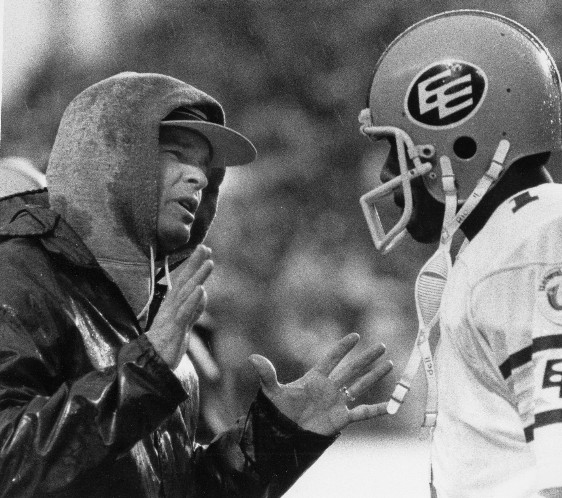By Adam Peleshaty
On September 20th, 28,853 people attended the Canadian Football League game between the Edmonton Eskimos and the hometown Winnipeg Blue Bombers at the brand new Investors Group Field.
Despite hockey season approaching, summer giving way to fall (the temperature went down to nine degrees during the game discounting the wind), and the fact both teams are unlikely to make the playoffs this season (both teams were 2-9), the new stadium was at 86% capacity. Although, the induction of former running back and diminutive fan favourite Charles Roberts to the team’s Hall of Fame didn’t hurt attendance.
This week was unique in that three Prairie cities: Winnipeg, Calgary and Regina, hosted CFL games in the same week, all games exceeding 28,000 in attendance. Regina almost gathered 40,000 fans for the Roughriders’ home game against the BC Lions.
The only game not in the Prairies was the league’s annual one-off game in Moncton named Touchdown Atlantic to satisfy football fans in the Maritimes. A quirk in the schedule to be sure, but it is reflective of both the league’s present and the league’s potential future.
While the CFL promotes itself as a brand just like every professional sports league, it also prides itself as being a Canadian institution. This is true, especially during Grey Cup weekend when fans from all over Canada unite for football, among other things. Although the league has never been more popular while maintaining a trans-Canadian appeal throughout its existence, there is an undisputable fact.
The heart of the CFL is in the Prairies.
Sure, Canadian football was invented in Toronto and Montreal. The Grey Cup has been played in Toronto more times than any other city. The league’s head office is in Toronto and the Canadian Football Hall of Fame is in Hamilton. There will also be three teams in Ontario starting next season. Its historical roots may be based in the east, but the west is where the CFL is most celebrated and appreciated.
Like most of the league’s teams, the Bombers, Riders, Esks and Stamps have been established in their cities and provinces for many decades and all of them have become an integral part of what the CFL has become. What makes those four teams different, however, is that fan support never wavered.
All of the league’s teams have went through money troubles at one point and losing seasons have kept fans away from the stands, but those teams have never experienced indifference or fan apathy. The BC Lions and Montreal Alouettes had problems in their respective histories, and the Toronto Argonauts and Hamilton Tiger-Cats still struggle with fading attendance (although their lack of new stadiums is an issue).
Also, the four Prairie CFL teams were never treated as minor-league products in comparison to the National Football League or other sports teams. For Calgary, Edmonton and Winnipeg, their football teams predated their NHL teams and the connections between them and the community have lasted longer. In the nomadic world of professional sport, some players have made those cities home after football. As for the Saskatchewan Roughriders, the team has become a well-known symbol of the provincial identity and personified through the phenomenon of “Rider Nation”.
It doesn’t hurt to win, either. Edmonton won five straight Grey Cups from 1978-82, while Calgary were led by future NFL quarterbacks Doug Flutie and Jeff Garcia in the 1990s. Even Saskatchewan, a longtime CFL doormat, appeared in three Grey Cups in four years from 2007-2010, winning in 2007.
In 1921, the Eskimos became the first western team to play in the Grey Cup. While the west wasn’t victorious until 1935 when Winnipeg won, it afforded the opportunity for the west to be on equal ground with eastern Canada, at a time when western alienation, as well as economic factors, made it difficult. When Calgary fans went to Toronto for the 1948 Grey Cup and rode a horse into the Royal York Hotel, it turned the Grey Cup from a football game to a national event. This year, the 101st edition will be held in Regina.
While southern Ontario and Quebec made Canadian football, the West completed it.
On that Friday night game, Winnipeg wasted a 20-0 lead and lost to the Eskimos 35-27 in overtime. Winnipeg plays another home game, this time against BC, while Edmonton returns to the City of Champions to play the Argos. For another week, the heart will still be beating.
—
